When it comes to providing interview feedback, it's essential to strike the right balance between professionalism and empathy. Candidates invest considerable time and effort into the interview process, and thoughtful, constructive feedback can make a difference in their future endeavors. Whether they impressed you with their skills or showed potential for growth, sharing clear insights can help them advance in their career journeys. Want to know how to craft the perfect feedback letter? Read on for tips and templates to guide you!

Introduction and Context
Interview feedback is an essential part of the hiring process, offering insights into candidates' performances during the selection process. Organizations like tech companies or financial institutions often conduct multiple rounds of interviews to evaluate skills, cultural fit, and potential contributions. This feedback typically assesses key competencies such as communication abilities, technical expertise, and problem-solving skills, detailing candidates' strengths and areas for improvement. Providing structured feedback ensures transparency and helps candidates understand their standing within the competitive job market, fostering a better candidate experience overall.
Assessment of Skills and Qualifications
Providing feedback after an interview is crucial for fostering a continuous improvement environment. Evaluation of candidates often focuses on skills such as technical abilities specific to the role (like coding proficiency in Python or software knowledge in Adobe Creative Suite) and soft skills, including communication, teamwork, and adaptability. Qualifications assessed may include educational background (for instance, a Bachelor's degree in Computer Science), relevant work experience (such as three years in project management), and any certifications (like PMP or Six Sigma) that align with the job requirements. The overall impression of the candidate's performance during the interview, their cultural fit within the organization, and their potential for growth also contribute significantly to the evaluation process. Detailed feedback can guide candidates in their professional development, helping them to understand both their strengths and areas for improvement.
Strengths and Areas for Improvement
During the interview process for the Marketing Coordinator position at XYZ Corporation, several strengths emerged that highlighted the candidate's capabilities. Strong communication skills demonstrated by clear articulation of ideas and experiences showcased a solid foundation for engaging with diverse teams. Creative problem-solving abilities were evident when discussing past projects that required innovative marketing strategies, particularly successful campaigns that increased brand visibility by 30%. However, areas for improvement were identified, notably time management. The candidate mentioned struggles with balancing multiple projects simultaneously, suggesting a need for better prioritization and organizational techniques. Additionally, familiarity with advanced data analytics tools, such as Google Analytics and Tableau, could enhance the candidate's ability to analyze campaign performance effectively.
Overall Impression and Fit
Overall impression of the candidate after the interview process indicates a strong alignment with the company's core values and culture. The candidate demonstrated a deep understanding of the industry, illustrating key skills such as problem-solving and teamwork. Communication abilities were impressive, with clear articulation of thoughts and responsive engagement during discussions. Additionally, the candidate's enthusiasm for the role and knowledge of the company's mission showed genuine interest. Cultural fit appears favorable, suggesting an ability to collaborate effectively within diverse teams and adapt to the company's dynamic environment.
Next Steps and Closing Remarks
In the job recruitment process, exact feedback plays a crucial role. Candidates who participated in structured interviews, such as behavioral or technical evaluations, generally appreciate detailed insights regarding their interview performance. Constructive feedback can highlight strengths, such as effective communication skills or relevant experiences, while also addressing areas for improvement, like specific technical knowledge gaps or situational responses. Establishing clear next steps is essential, whether it involves scheduling follow-up interviews, providing additional assessment tasks, or communicating timelines for final decisions. Maintaining a professional tone ensures candidates feel valued, fostering a positive candidate experience even if they are not selected, which reflects the organization's culture and commitment to professionalism in human resources.

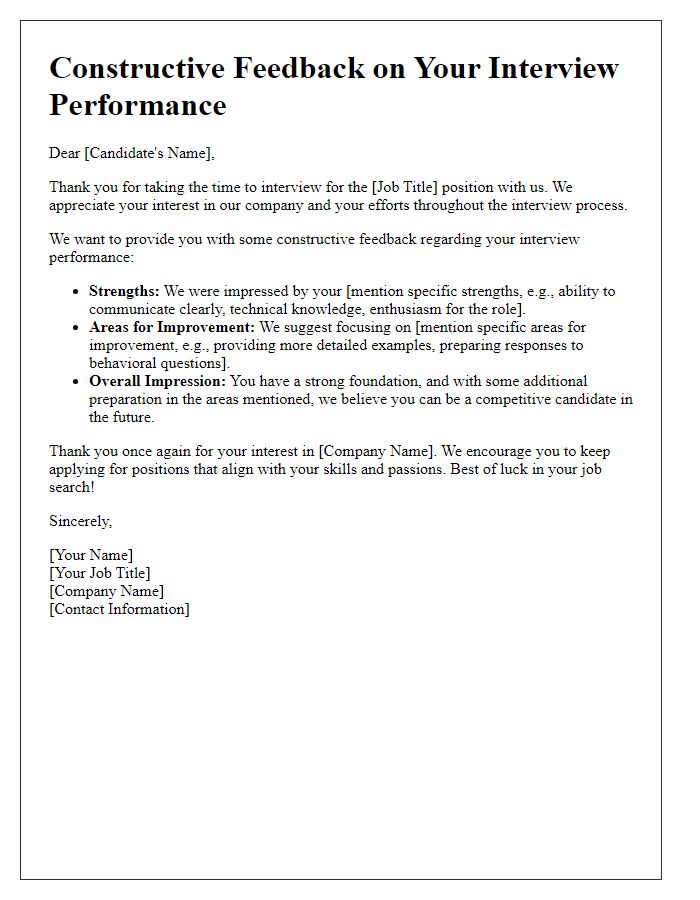
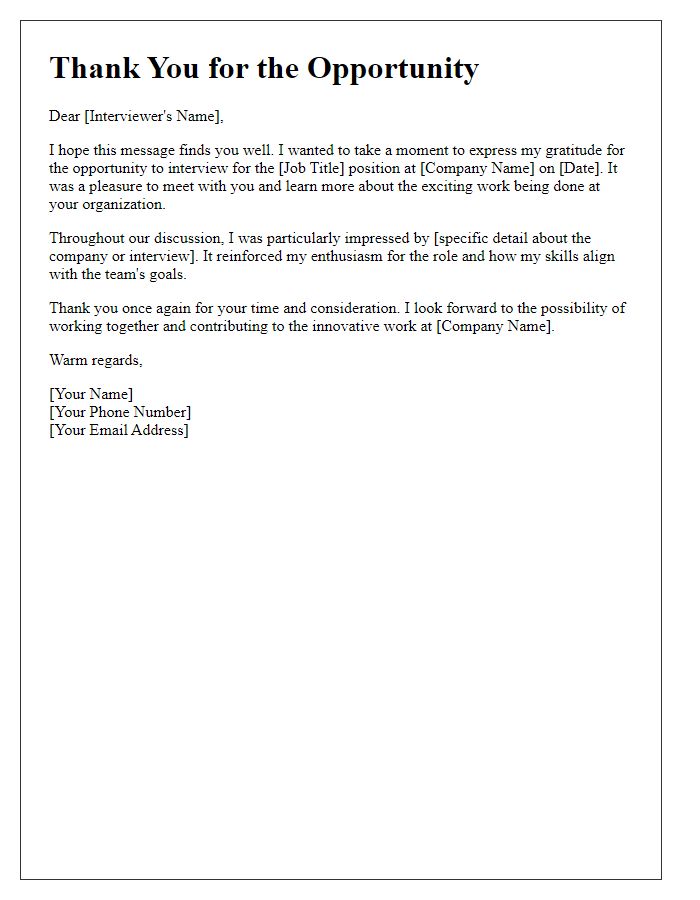
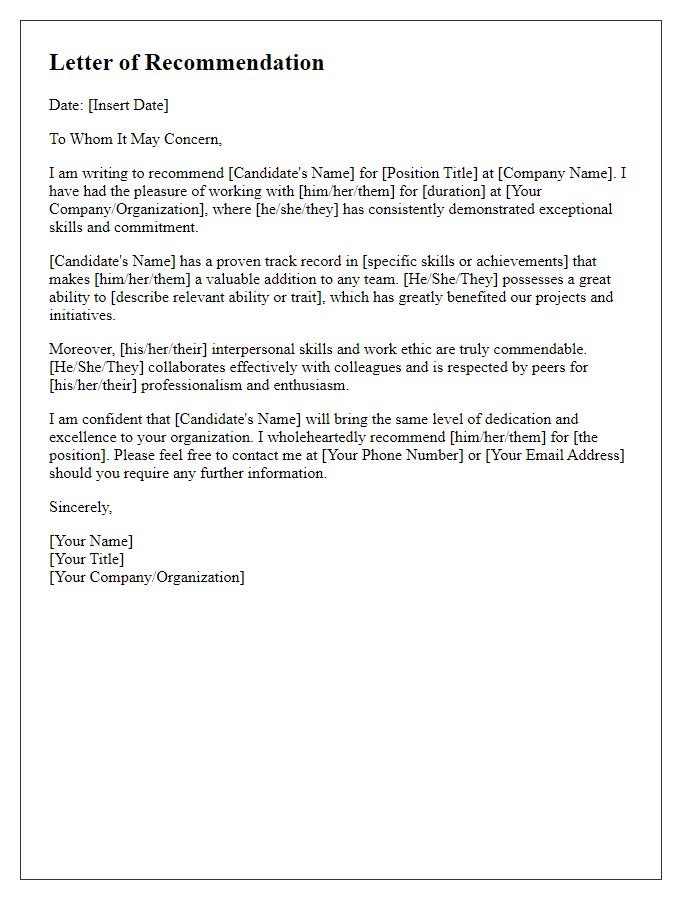
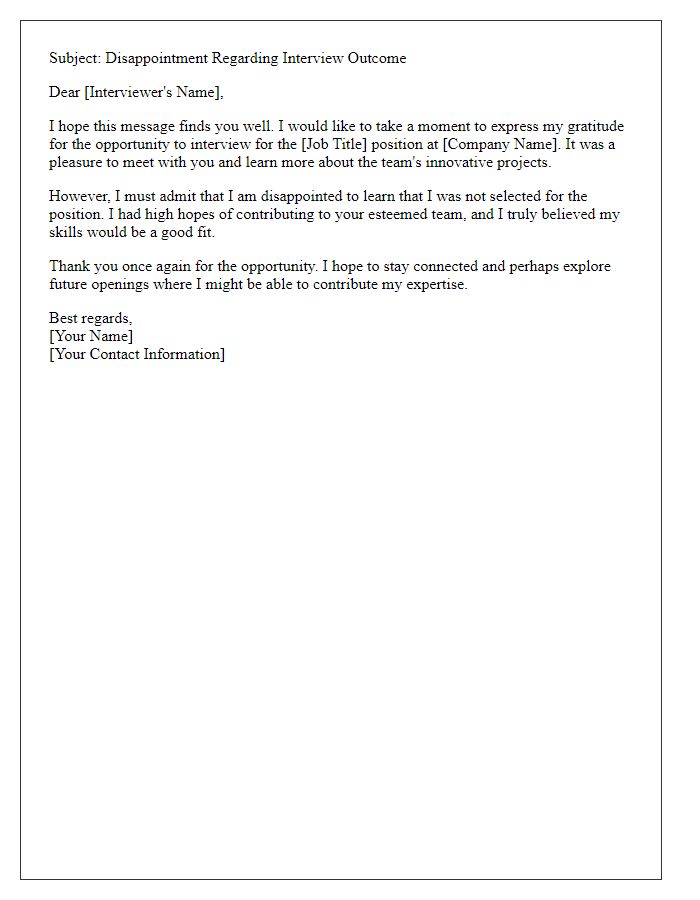
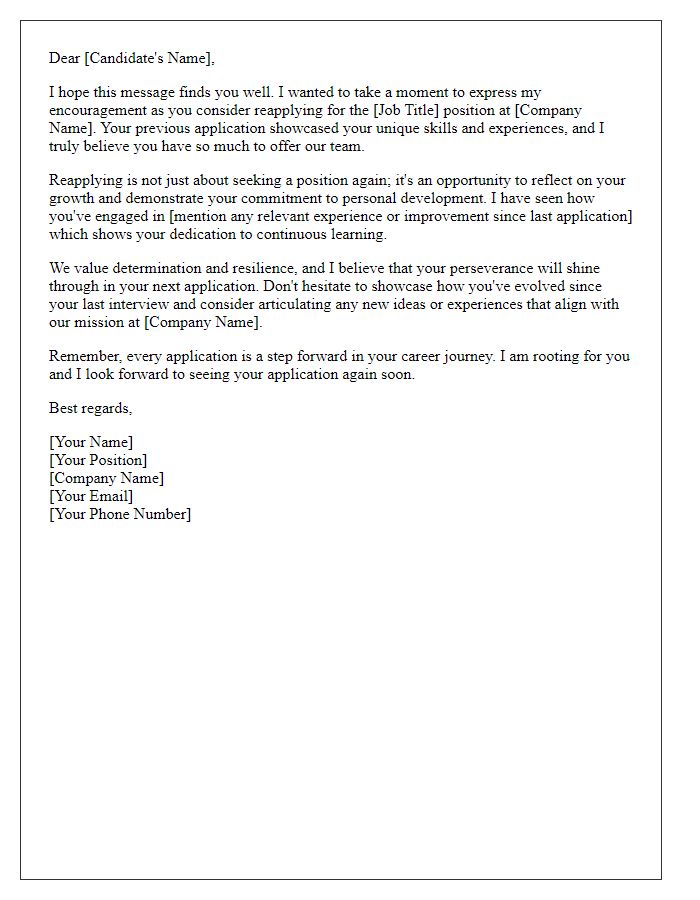
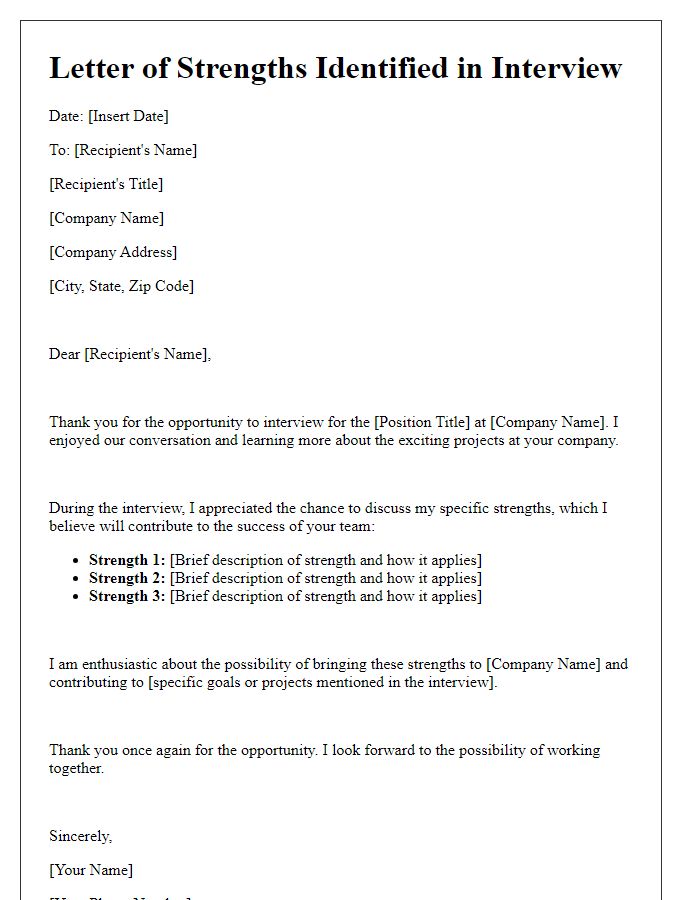
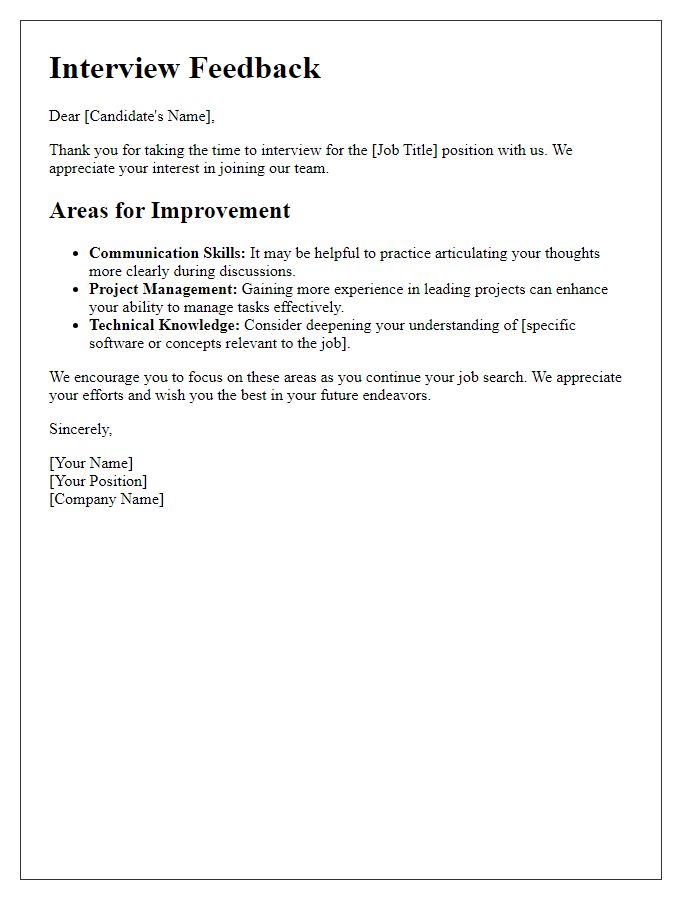
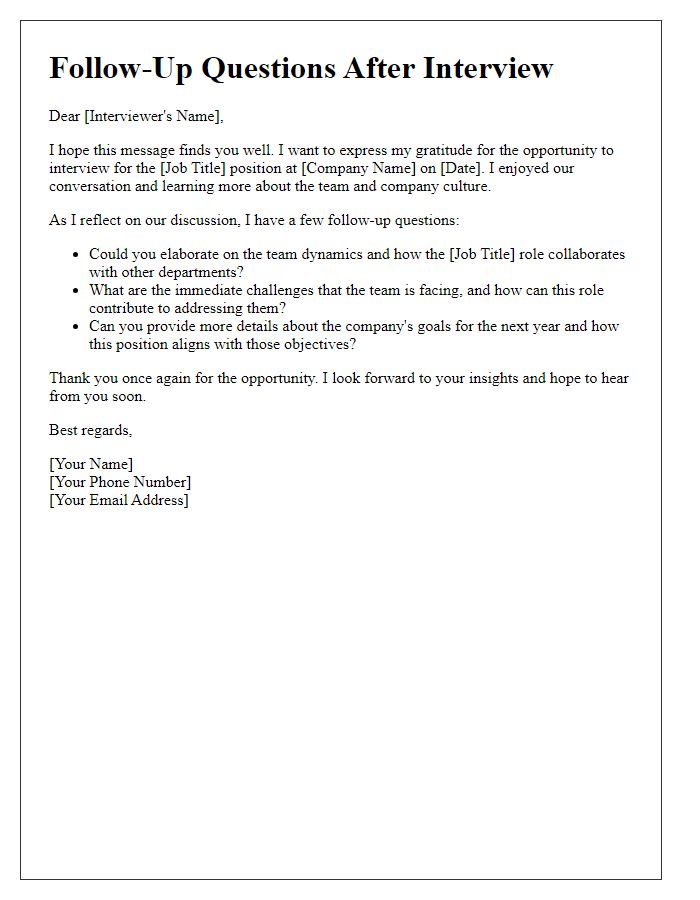
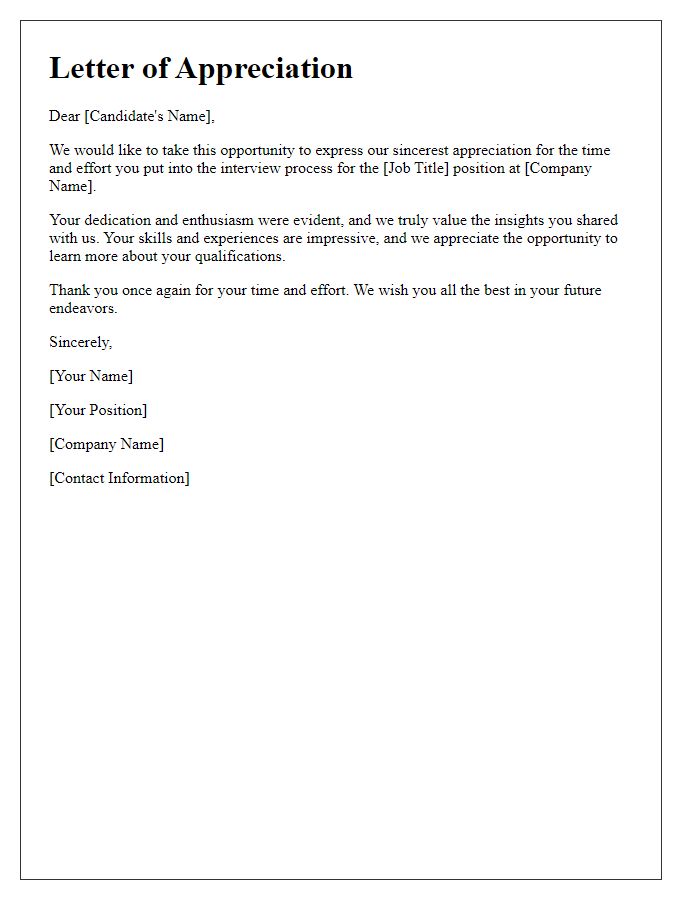
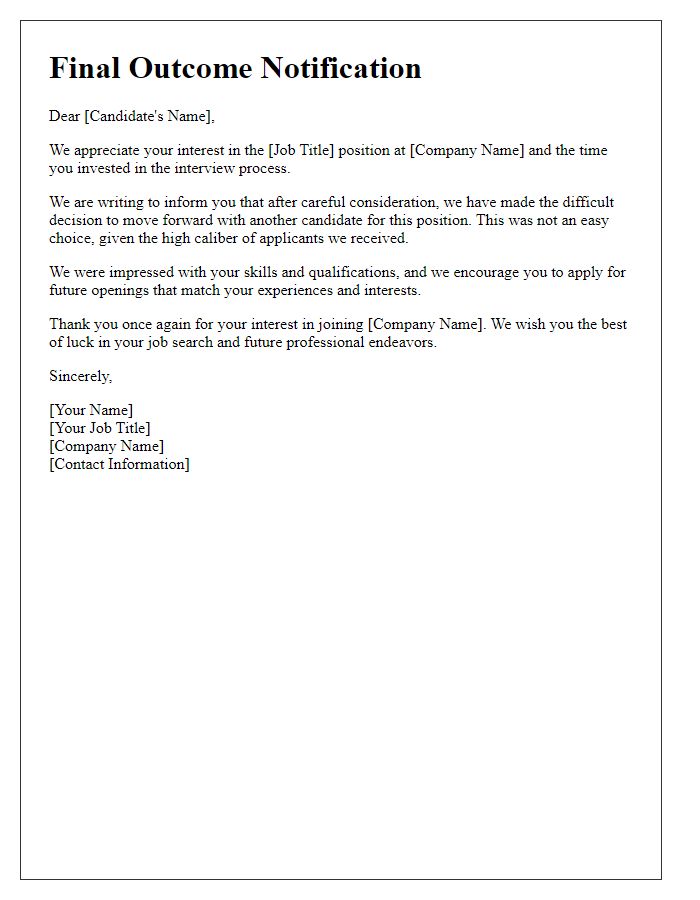


Comments